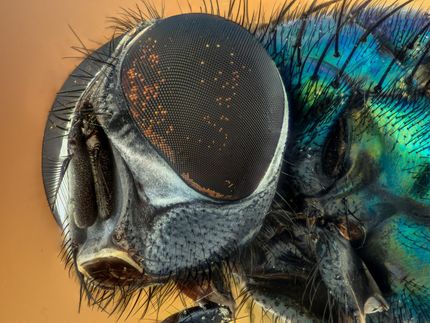Unfavourable carbohydrates early in the morning - a potential problem for "owls"
"Larks" and "owls" react differently to carbohydrate-rich meals
A carbohydrate-rich meal in the morning triggers a lower glucose increase than the same meal in the evening - that is the current state of science. The latest results now show: This is not the case for everyone and depends on the "internal clock". A fixed daily routine, dictated by studies or a job, often leads to young adults in particular eating against their internal clock. The "lark" and "owl" types differ in their so-called circadian rhythm (chronotype) - larks get up early and eat earlier, while owls sleep longer and eat later for biological reasons. Scientists at Paderborn University have investigated the extent to which this affects glucose levels. The results were published in the "European Journal of Nutrition".
"Eating against the internal clock also particularly affects students who, for example, eat breakfast early in the morning even though they are still in the biological sleep phase due to their late chronotype. On the other hand, social activities sometimes cause people with an early chronotype to eat their dinner 'too late'. Therefore, in our study, we wanted to investigate whether the differences in the glucose response at different times of the day are also found in students with an early and late chronotype," explains Dr. Bettina Krüger from the Institute of Nutrition, Consumption and Health at Paderborn University.
After screening 327 students aged 18 to 25 years, 45 students with the earliest and latest chronotypes took part in a controlled dietary study conducted from September to December 2020. The participants all received meals and snacks, which they consumed at predetermined times. On one day, the students ate a meal that triggers a high glucose increase, i.e. has a high glycemic index, at 7 am, and on another day at 8 pm. The glucose response was measured using a continuous glucose meter.
"As expected, students with an early chronotype - the larks - showed a higher glucose response to the meal eaten in the evening. However, in students with a late chronotype - the owls - the morning response was similar to the evening response. The results for the larks underline the decreasing glucose tolerance over the course of the day, i.e. the ability to regulate glucose in the blood. We were surprised by the results for the owls," says Bianca Stutz, who is doing her doctorate as part of the "Chronotype and Nutrition" study ("ChroNu Study") at Paderborn University. "A very early breakfast seems to be critical for owls if it contains plenty of unfavorable carbohydrates. Owls should therefore pay attention to the quality of carbohydrates not only in the evening but also in the morning and prefer to have breakfast later, for example by taking their breakfast with them to university," explains study leader Prof. Dr. Anette Buyken. The results also suggest that eating late in the evening is detrimental to the glucose response - regardless of chronotype.
Original publication
Bianca Stutz, Bettina Krueger, Janina Goletzke, Nicole Jankovic, Ute Alexy, Christian Herder, Jutta Dierkes, Gabriele Berg-Beckhoff, Rasmus Jakobsmeyer, Claus Reinsberger, Anette E. Buyken; "Glycemic response to meals with a high glycemic index differs between morning and evening: a randomized cross-over controlled trial among students with early or late chronotype"; European Journal of Nutrition, 2024-4-12
Most read news
Original publication
Bianca Stutz, Bettina Krueger, Janina Goletzke, Nicole Jankovic, Ute Alexy, Christian Herder, Jutta Dierkes, Gabriele Berg-Beckhoff, Rasmus Jakobsmeyer, Claus Reinsberger, Anette E. Buyken; "Glycemic response to meals with a high glycemic index differs between morning and evening: a randomized cross-over controlled trial among students with early or late chronotype"; European Journal of Nutrition, 2024-4-12
Topics
Organizations
Other news from the department science

Get the life science industry in your inbox
By submitting this form you agree that LUMITOS AG will send you the newsletter(s) selected above by email. Your data will not be passed on to third parties. Your data will be stored and processed in accordance with our data protection regulations. LUMITOS may contact you by email for the purpose of advertising or market and opinion surveys. You can revoke your consent at any time without giving reasons to LUMITOS AG, Ernst-Augustin-Str. 2, 12489 Berlin, Germany or by e-mail at revoke@lumitos.com with effect for the future. In addition, each email contains a link to unsubscribe from the corresponding newsletter.






















































